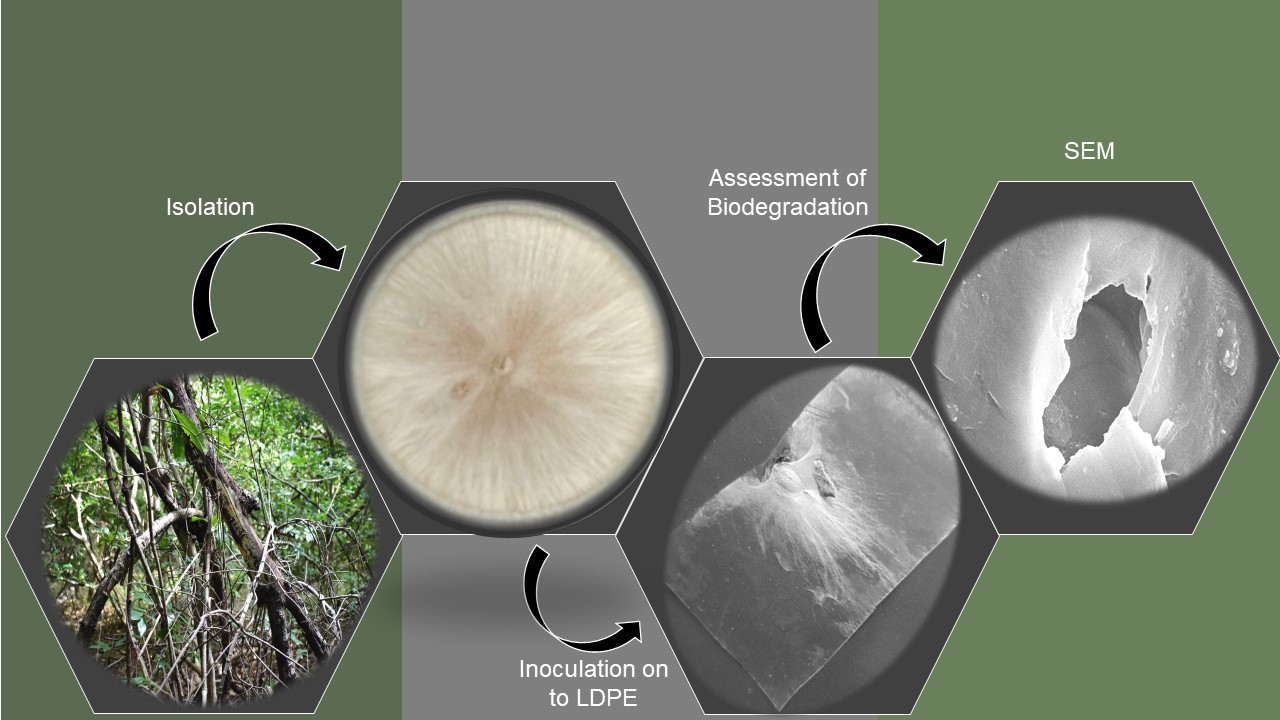
This research project was initiated to find a solution for a burning global issue, the accumulation of polyethylene. Previous research findings have reported that fungal depolymerization enzymes play a role in polyethylene degradation. In this project, fungi were isolated from decaying hardwood species from dry zone forests of Sri Lanka rich in decay-resistant hardwoods such as “Kaluwara” and “Burutha”. During the study, eighty-five fungal samples were identified using the latest DNA-based technologies. All the identified species were tested for their ability to secrete economically important polymer degrading enzyme, called “laccase”. The laccase enzyme has a wide range of industrial applications such as: industrial dye decolonization, polymer degradation, paper industry, and many more. The best laccase producers were assessed for their abilities to secrete other polymer degrading biotechnologically important enzymes that have the potential to be used in other industrial applications.
Parallelly, the isolates were grown in polyethylene sheet containing media as the only carbon source. Several tests were conducted to determine the level of degradation viz, use of a scanning electron microscope, weight loss, reduction in the strength of the sheets, and changing of chemical properties. A sample isolated from hardwood had a strong potential to degrade polyethylene and it was also capable of utilizing polyethylene as the only C source in the media. 3% degradation was confirmed after the 45-day incubation period. The next step would be to optimize laccase production and characterization and compare it with laccases from other fungal species.
The research project was co-funded by the International Centre for Genetic Engineering and Biotechnology (ICGEB) and NSF. Research team consisted of Prof. Renuka Attanayake and Dr H. M Herath of University of Kelaniya.


